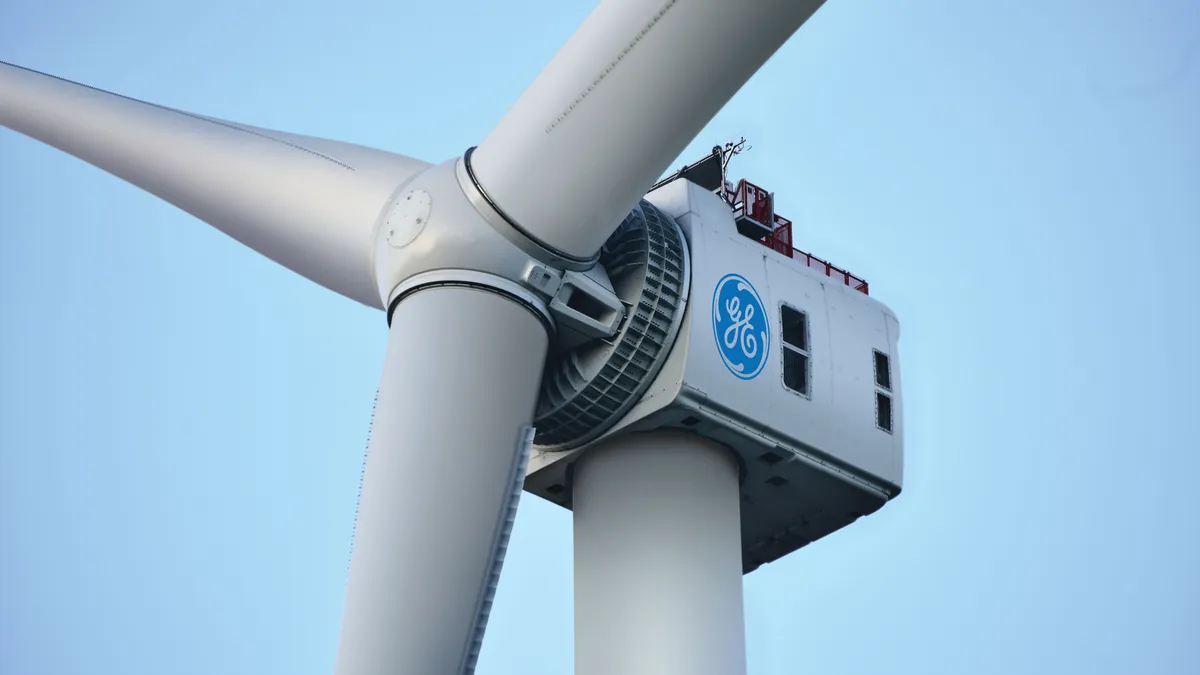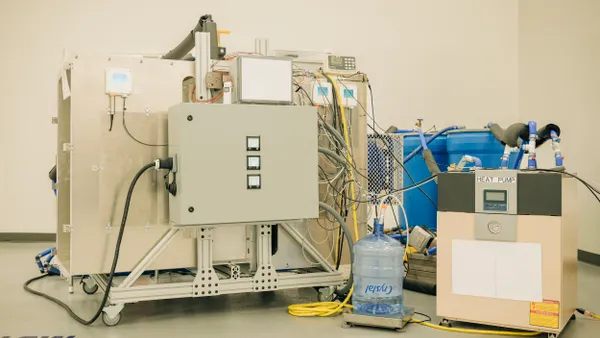Dive Brief:
- The clean energy sector shed around 307,000 jobs last year amid the coronavirus pandemic, according to research released Monday by advocacy group Environmental Entrepreneurs (E2), with the sector now employing around 3 million Americans.
- The report found that at one stage last year, approximately 600,000 clean energy jobs had been lost due to the effects of COVID-19, although the sector recovered after May to cut that shortfall roughly in half. Wind energy and the manufacturing of electric and plug-in hybrid vehicles ended the year having added about 2,000 and 12,200 jobs respectively. While energy efficiency saw the greatest drop in jobs at 11% compared to the previous year.
- E2 noted that clean energy jobs grew 11% since May, compared to the less than 9% growth in the national workforce during the same period. And federal investment could prompt a strong rebound in 2021, the report said, especially if Congress passes President Joe Biden's American Jobs Plan.
Dive Insight:
The research from E2, its sixth annual report on the state of clean energy jobs in the United States, gave reason for optimism in the sector.
The analysis is based on preliminary employment data collected and analyzed by BW Research Partnership for the 2021 U.S. Energy and Employment Report (USEER), which analyzes data from the U.S. Bureau of Labor Statistics (BLS) Quarterly Census of Employment and Wages. The 2021 USEER also relies on a unique supplemental survey of 35,000 business representatives across the U.S.
It notes that while the number of clean energy jobs decreased in 2020, the sector remains a much bigger source of employment than fossil fuels nationwide, which currently provides around 1 million jobs. Researchers also said there are more people employed in clean energy than work as teachers, realtors, farmers and bankers.
And Phil Jordan, vice president and principal at BW Research, noted that two-thirds of clean energy jobs are at companies with 20 employees or fewer, showing the sector's importance among small businesses. But he said a rebound will take time despite encouraging signs so far.
"It's true the sector rebounded better than many industries in the U.S. from its summertime lows, but there's still a long way to go, not only to make up for the hundreds of thousands of lost jobs, but to reclaim the rate of historic growth prior to the pandemic," Jordan said during a press conference to mark the report's release.
The growth in vehicle electrification comes with automakers looking to reduce emissions from their cars and other offerings, and with the Biden administration trying to expand charging infrastructure. With private industry leading the way, E2 Executive Director Bob Keefe said during the press conference that the sector looks "better and brighter than ever and is poised for growth like never before," even though clean energy jobs in general were "hit hard" by the pandemic.
But those on the press conference called on Congress and the Biden administration to do more to promote clean energy jobs and ensure a just and equitable transition away from fossil fuels. Sandra Purohit, federal advocacy director at E2, said that includes reforming tax policy and looking at new financing mechanisms to encourage renewables, while emphasizing that union jobs will help contribute to good working conditions.
She added that the federal government must "double down" on innovation in a "government-wide approach," but noted that clean energy businesses are already struggling to find the skilled workers they need, so workforce development is crucial.
"It won't matter that bold climate action will create millions of new jobs if America doesn't have the skilled labor to benefit from it," Purohit said.
Federal representatives said they are up to the task, through the American Jobs Plan and other methods, amid ambitious climate targets and pressure to act from business and E2 alike. Deputy U.S. Energy Secretary David Turk said the federal government can "supercharge" clean energy jobs, including by ensuring that women, people of color, those who live in rural areas and those currently employed in fossil fuels are engaged on how they can be more involved.
"This is not something that's going to be dictated from Washington, DC," Turk said. "This is one of those areas where we need to have some humility, we need to listen to communities, we need to listen to workers and have place-based strategies that work for particular communities."











